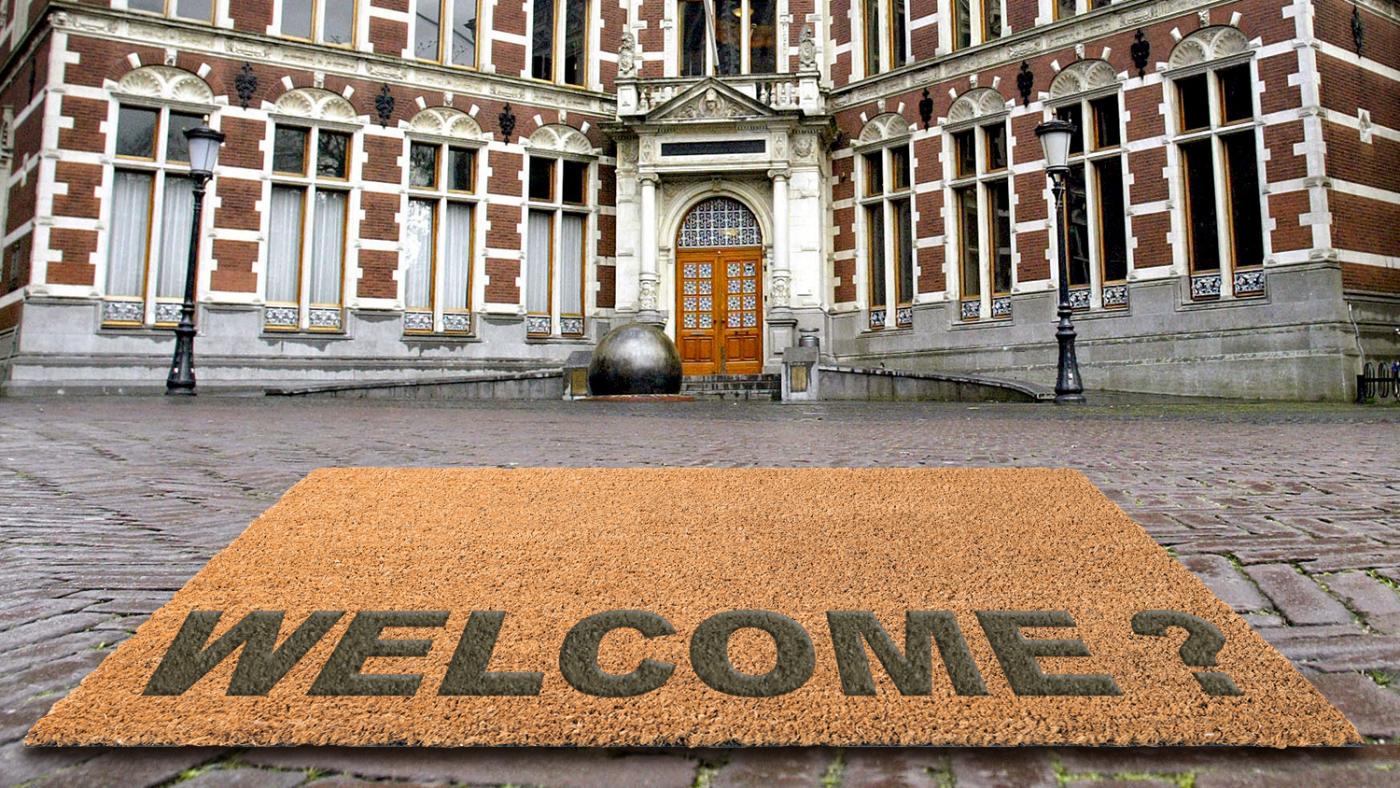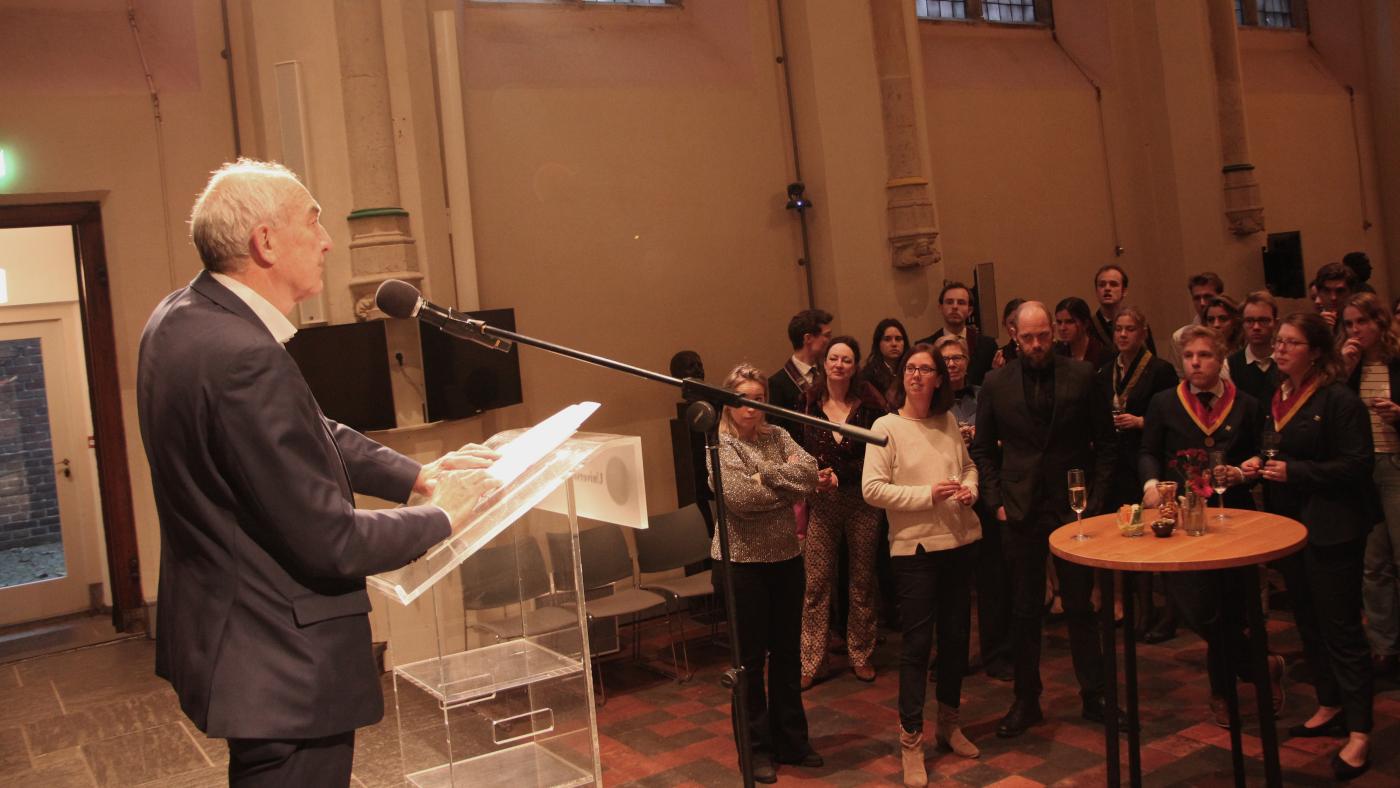UU also investigates Dutch tracks for programmes currently taught in English
Dutch universities: all 'major' Bachelor's programmes to get a Dutch track

Universities are aware that the internationalisation of higher education does not come without problems, which is why they would like to solve these issues themselves, they say in a statement published today (available in Dutch only, Ed.). Self-management is the keyword here.
Migration was a prominent topic surrounding last year's elections. The biggest winners, PVV and NSC, would like to limit the influx of foreign students considerably, through measures such as switching practically all Bachelor's programmes back to Dutch.
Self-management
With this statement, universities are expressing their desire to manage matters themselves. They stress how valuable international students are to the Dutch economy and the quality of education, but they also acknowledge the bottlenecks, such as the housing crisis, the impact on Dutch proficiency levels, and the fact that Dutch students sometimes have to compete with international candidates when study spots are scarce.
They also show that the much-discussed growth in the number of international students has come to a halt. The number of first-year Bachelor's students from abroad has remained at pretty much the same level for the third consecutive year. Universities attribute this to the fact that they are no longer actively recruiting students abroad. They are also warning prospective students about the housing shortage. "Don't come here unless you have secured a room already" is the message many of them, including UU, have sent to prospective students. At UU, one in seven students comes from abroad, which makes 15 percent of the total student population. Three-quarters of them come from other countries in the European Union, which means the university is legally obliged to admit them.
Series of measures
The statement also presents a series of measures to address the bottlenecks. For example, universities want to create a Dutch-language version for all major Bachelor's programmes, including Psychology, Business and Economics. At Utrecht University, this concerns the programmes certainly Economics & Business Economics. There are three other Bachelor's programmes in English where the UU will investigate the possibility to make a Dutch track. We are talking about Philosophy, Politics and Economics (PPE); Global Sustainability Science; and Molecular & Biophysical Life Sciences. The two University Colleges (UCU and UCR) were not mentioned in this context.
Some programmes, such as Pharmacy in Groningen, will switch back to Dutch completely. The fourteen universities have promised to examine which other programmes can do the same.
The Minister of Education, Robbert Dijkgraaf, who is occupying the position in a caretaker capacity, is working on a law to get a grip on internationalisation without closing the borders to international talent. One of the measures proposed is that universities and universities of applied sciences would soon be allowed to establish an enrolment cap (also known in the Netherlands by the Latin term numerus fixus, Ed.) for English-taught tracks, while the Dutch-taught tracks would remain the same. That's a measure universities have been demanding for years as it would enable them to control the number of foreign students while still keeping the door open for Dutch students.
If universities would merely create Dutch tracks for Bachelor's programmes only taught in English, that would not only represent an additional investment but would also do little to reduce the number of international students. By also introducing an enrolment cap, the number of international students can be regulated.
Placement policy
Universities are also considering adopting a placement policy for some programmes, as used to be customary in Medicine, in the future. This means that if students cannot attend an English-taught course at a certain university, they can do it at another university (if there are still spots available).
Political parties NSC, VVD and BBB urged Dijkgraaf and universities to team up and draw up a plan to “sharply reduce” the number of English-taught courses. Universities are keen on doing that. They would rather create additional programmes in Dutch. The three political parties also mentioned Master's degrees, a topic universities are not willing to discuss at the moment. Their statement only addresses the Bachelor's level.
Improving Dutch skills
Other intentions presented by universities today include improving students' Dutch skills – that goes for both Dutch nationals and foreign students, as well as international staff members, for whom certain requirements will be imposed. Currently, 21 percent of UU's employees are international.
In a statement posted on the Intranet (available only to those with a Solis ID, Ed.), Utrecht University says that all administrative communication will happen in Dutch. English will only be used as an additional language for "practical" reasons. University Council memoranda will remain bilingual. Some faculty councils, such as the one in the Faculty of Science and the one at the Faculty of Geosciences, currently conduct their meetings in English.
Furthermore, universities that offer a "preparatory year" for students coming from countries where secondary education is only equivalent to the Dutch HAVO level, which is not enough to attend a research university, will stop doing so “as soon as contracts with current providers expire”.
No targets
Although the fourteen universities believe there should be fewer international students at the Bachelor's level, they did not mention any targets. Neither did they specify what they mean by a "major Bachelor's programme". In any case, university colleges, which are small-scale, will not be included. English remains their language of instruction.
At present, 30 percent of Bachelor's programmes are taught entirely in English. Another 18 percent have an English-taught track. The rest (just over fifty percent of the total) is in Dutch but even then some courses can be taught in English (no more than one-third of them).
Dutch universities have agreed not to launch any English-taught programmes at the Bachelor's level for the time being. Minister Dijkgraaf's draft bill, titled "Internationalisation in Balance" foresees a test for both new and existing English-taught courses.

In his New Year's speech, UU President Anton Pijpers said that internationals are welcome at UU, but the university wants to take a critical look at the influx of students from abroad. Photo: DUB
Master's programmes remain in English
76 percent of Master's degrees in the Netherlands are entirely taught in English. Universities find that this makes sense as these programmes are closer to scientific research, in which English is the lingua franca.
The debate about the anglicisation of higher education in the Netherlands is not new, which raises the question of why it took so long for universities to announce these measures. Conversely, one could wonder why they are not fighting to keep internationalisation in its current state. “We fully support internationalisation,” says Jouke de Vries, Interim Chair of the association of Dutch universities, UNL. He is also the chair of the University of Groningen. “But we are also confronted with several bottlenecks, which prompts us to ask ourselves: what is the optimal size of a university?”
“Internationalisation is very important,” he underscores, “because science is international. But we have to find a balance. Most universities agree that some parts can still grow, but we want to consolidate things.”
Anton Pijpers, President of the UU Executive Board, was present at the press conference as chairman of the UNL working group. He adds that internationalisation is not under discussion at the Master's level. “It makes much more sense there. At the Bachelor's level, things are a bit more nuanced.”
Taking responsibility
Minister Dijkgraaf appreciates that universities and universities of applied sciences are taking responsibility. Once he receives the individual plans of each institution, in March, he will react to them substantively and then forward them to the House of Representatives. The minister emphasises once again that he wants to leave room for “regional customisation”.
Earlier this week, the Education Council presented its critical analysis of Dijkgraaf's draft bill. The Council of State will also advise him on this. The minister would like to send the bill to the House of Representatives “as early as possible in the second quarter”.